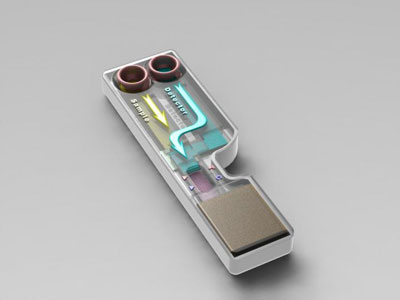 Finding out whether you have been infected with dengue may soon be as easy as spitting into a rapid test kit. The paper-based disposable device will allow dengue-specific antibodies to be detected easily from saliva within 20 minutes. This device is currently undergoing further development for commercialization.
Finding out whether you have been infected with dengue may soon be as easy as spitting into a rapid test kit. The paper-based disposable device will allow dengue-specific antibodies to be detected easily from saliva within 20 minutes. This device is currently undergoing further development for commercialization.
Jan 29th, 2015
Read more
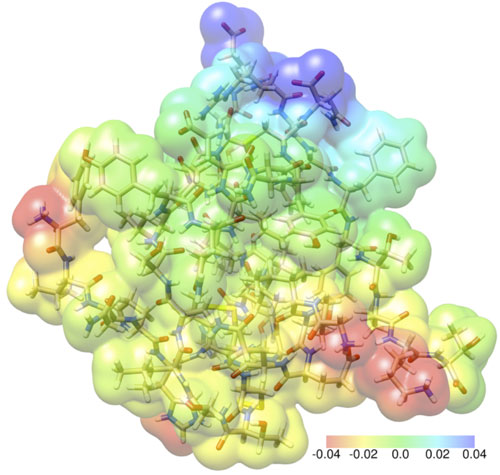 Quantum chemical calculations have been used to solve big mysteries in space. Soon the same calculations may be used to produce tomorrow's cancer drugs.
Quantum chemical calculations have been used to solve big mysteries in space. Soon the same calculations may be used to produce tomorrow's cancer drugs.
Jan 29th, 2015
Read more
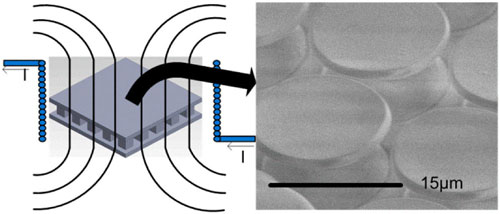 A magnetic field controllable dry adhesive device is manufactured. The normal adhesion force can be increased or decreased depending on the presence of an applied magnetic field.
A magnetic field controllable dry adhesive device is manufactured. The normal adhesion force can be increased or decreased depending on the presence of an applied magnetic field.
Jan 28th, 2015
Read more
 A spider commonly found in garden centres in Britain is giving fresh insights into how to spin incredibly long and strong fibres just a few nanometres thick.
A spider commonly found in garden centres in Britain is giving fresh insights into how to spin incredibly long and strong fibres just a few nanometres thick.
Jan 28th, 2015
Read more
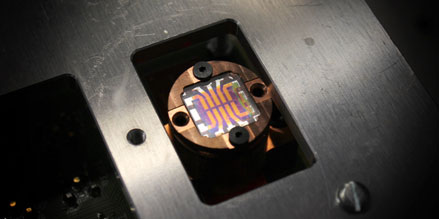 Researchers have developed a comprehensive model to explain how electrons flow inside new types of solar cells made of tiny crystals. The model allows for a better understanding of such cells and may help to increase their efficiency.
Researchers have developed a comprehensive model to explain how electrons flow inside new types of solar cells made of tiny crystals. The model allows for a better understanding of such cells and may help to increase their efficiency.
Jan 28th, 2015
Read more
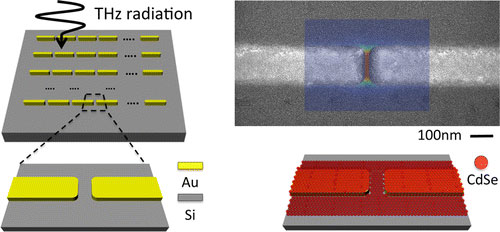 Although terahertz spectroscopy has great potential, especially for environmental monitoring and security screening applications, it previously could not be used effectively to study nanocrystals or molecules at extremely low concentrations. An international team has found a solution to this problem by increasing the technique's sensitivity using metallic nanostructures.
Although terahertz spectroscopy has great potential, especially for environmental monitoring and security screening applications, it previously could not be used effectively to study nanocrystals or molecules at extremely low concentrations. An international team has found a solution to this problem by increasing the technique's sensitivity using metallic nanostructures.
Jan 28th, 2015
Read more
 Multitasking circuits capable of reconfiguring themselves in real time and switching functions as the need arises - this is the promising application stemming from a new discovery.
Multitasking circuits capable of reconfiguring themselves in real time and switching functions as the need arises - this is the promising application stemming from a new discovery.
Jan 28th, 2015
Read more
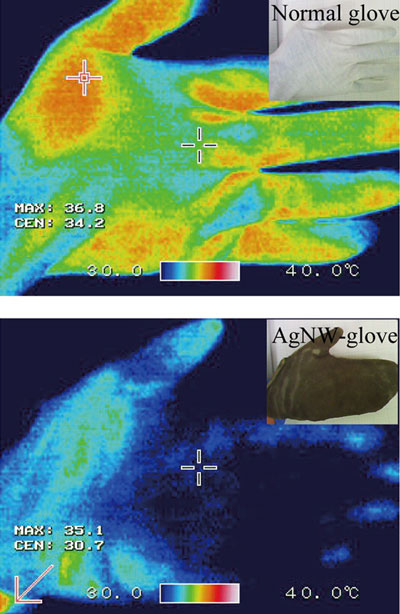 Scientists have developed a novel nanowire coating for clothes that can both generate heat and trap the heat from our bodies better than regular clothes.
Scientists have developed a novel nanowire coating for clothes that can both generate heat and trap the heat from our bodies better than regular clothes.
Jan 28th, 2015
Read more
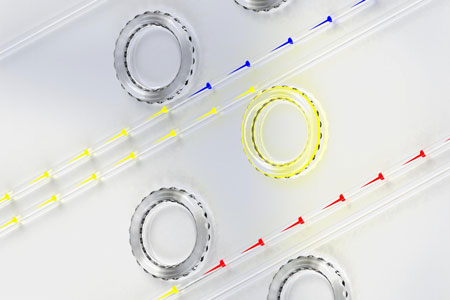 Researchers have experimentally demonstrated, for the first time, the phenomenon of Brillouin Scattering Induced Transparency (BSIT), which can be used to slow down, speed up, and block light in an optical waveguide. The BSIT phenomenon permits light to travel in the forward direction while light traveling in the backward direction is strongly absorbed.
Researchers have experimentally demonstrated, for the first time, the phenomenon of Brillouin Scattering Induced Transparency (BSIT), which can be used to slow down, speed up, and block light in an optical waveguide. The BSIT phenomenon permits light to travel in the forward direction while light traveling in the backward direction is strongly absorbed.
Jan 28th, 2015
Read more
The European Union is investing heavily in the exploitation of graphene's unique properties through a number of research initiatives such as the SEMANTICS project running at Trinity College Dublin.
Jan 28th, 2015
Read more
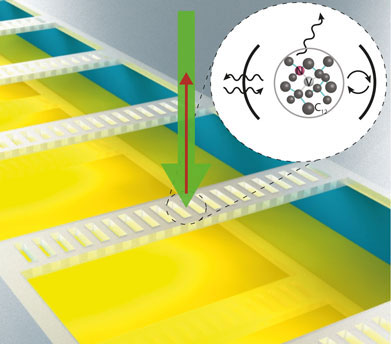 Advance could lead to quantum computing and the secure transfer of information over long-distance fiber optic networks.
Advance could lead to quantum computing and the secure transfer of information over long-distance fiber optic networks.
Jan 28th, 2015
Read more
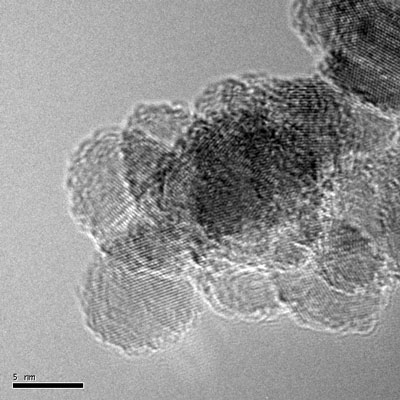 Researchers hope that their properties might be altered to permit nanodiamonds to be used as catalysts for generating hydrogen from sunlight.
Researchers hope that their properties might be altered to permit nanodiamonds to be used as catalysts for generating hydrogen from sunlight.
Jan 28th, 2015
Read more
Scientists have shown that a micromotor fueled by stomach acid can take a bubble-powered ride inside a mouse. These tiny motors, each about one-fifth the width of a human hair, may someday offer a safer and more efficient way to deliver drugs or diagnose tumors.
Jan 27th, 2015
Read more
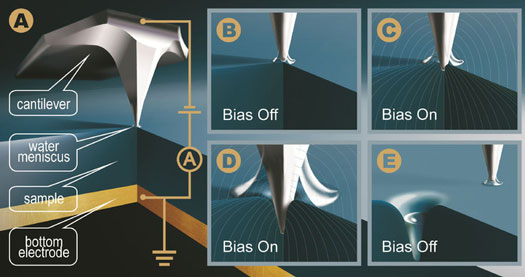 Friction impacts motion, hence the need to control friction forces. Currently, this is accomplished by mechanistic means or lubrication, but experiments conducted by researchers at Oak Ridge National Laboratory have uncovered a way of controlling friction on ionic surfaces at the nanoscale using electrical stimulation and ambient water vapor.
Friction impacts motion, hence the need to control friction forces. Currently, this is accomplished by mechanistic means or lubrication, but experiments conducted by researchers at Oak Ridge National Laboratory have uncovered a way of controlling friction on ionic surfaces at the nanoscale using electrical stimulation and ambient water vapor.
Jan 27th, 2015
Read more
 A prestigious award will support a Kansas State University engineer's research on nanosheets and will help organize educational activities for high school students and teachers.
A prestigious award will support a Kansas State University engineer's research on nanosheets and will help organize educational activities for high school students and teachers.
Jan 27th, 2015
Read more
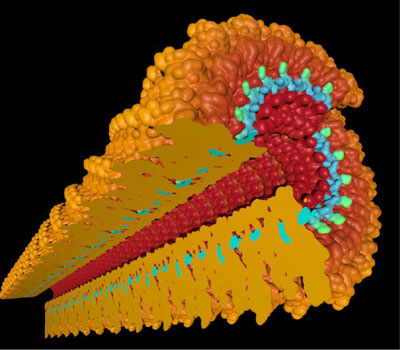 Health care workers must diagnose and isolate Ebola victims at an early stage to have a chance to save them and prevent the virus from spreading. But the most sensitive and quickest diagnostic test produces a small percentage of false negative results that undermine efforts to control the deadly agent. A $100,000 National Science Foundation (NSF) grant has been awarded to develop a method to reduce the risk of the virus going undetected.
Health care workers must diagnose and isolate Ebola victims at an early stage to have a chance to save them and prevent the virus from spreading. But the most sensitive and quickest diagnostic test produces a small percentage of false negative results that undermine efforts to control the deadly agent. A $100,000 National Science Foundation (NSF) grant has been awarded to develop a method to reduce the risk of the virus going undetected.
Jan 27th, 2015
Read more
 Finding out whether you have been infected with dengue may soon be as easy as spitting into a rapid test kit. The paper-based disposable device will allow dengue-specific antibodies to be detected easily from saliva within 20 minutes. This device is currently undergoing further development for commercialization.
Finding out whether you have been infected with dengue may soon be as easy as spitting into a rapid test kit. The paper-based disposable device will allow dengue-specific antibodies to be detected easily from saliva within 20 minutes. This device is currently undergoing further development for commercialization.













 Subscribe to our Nanotechnology News feed
Subscribe to our Nanotechnology News feed